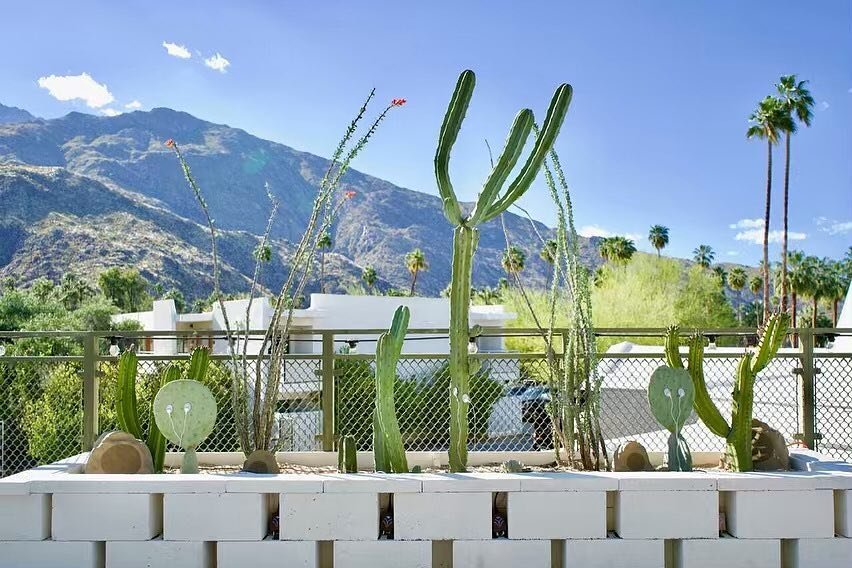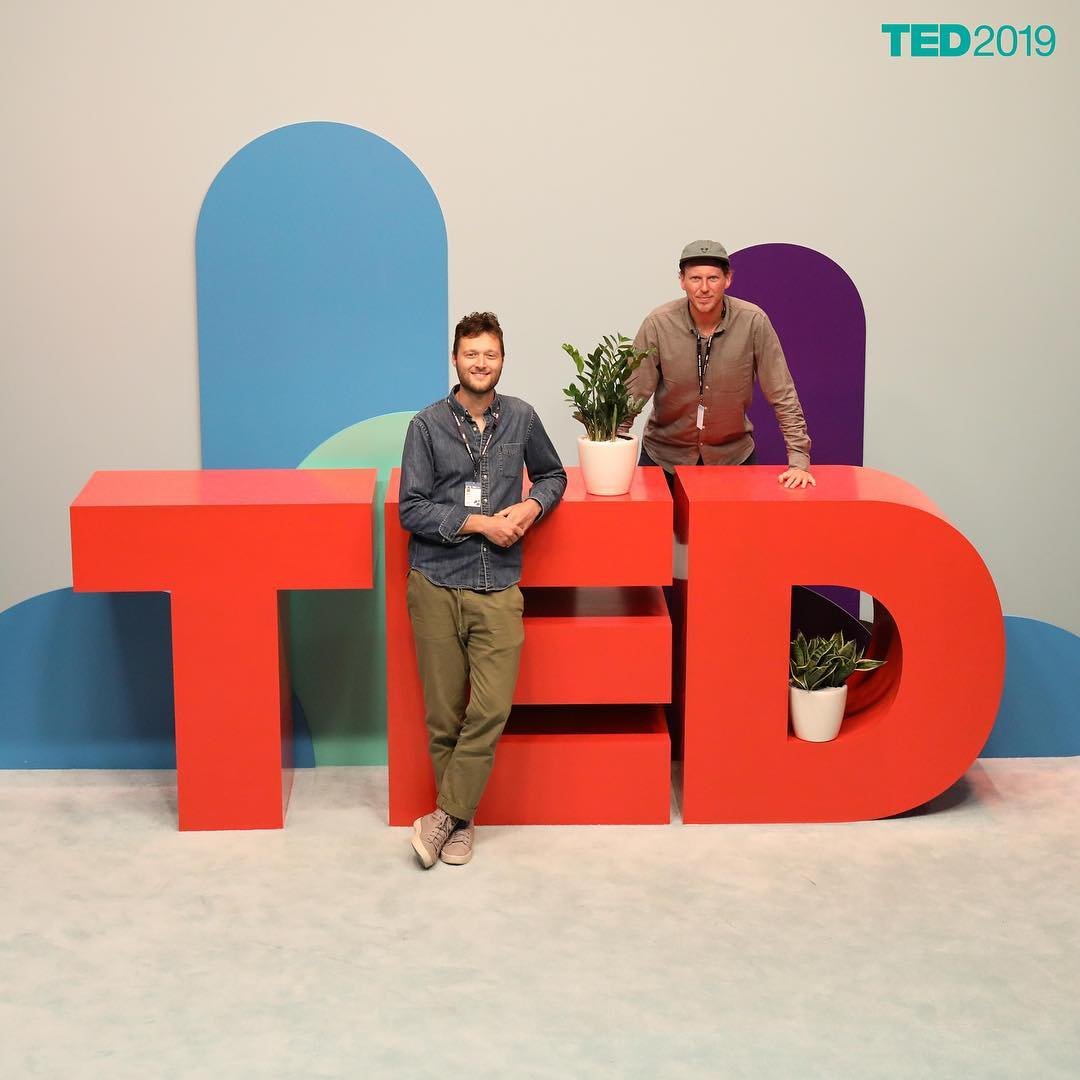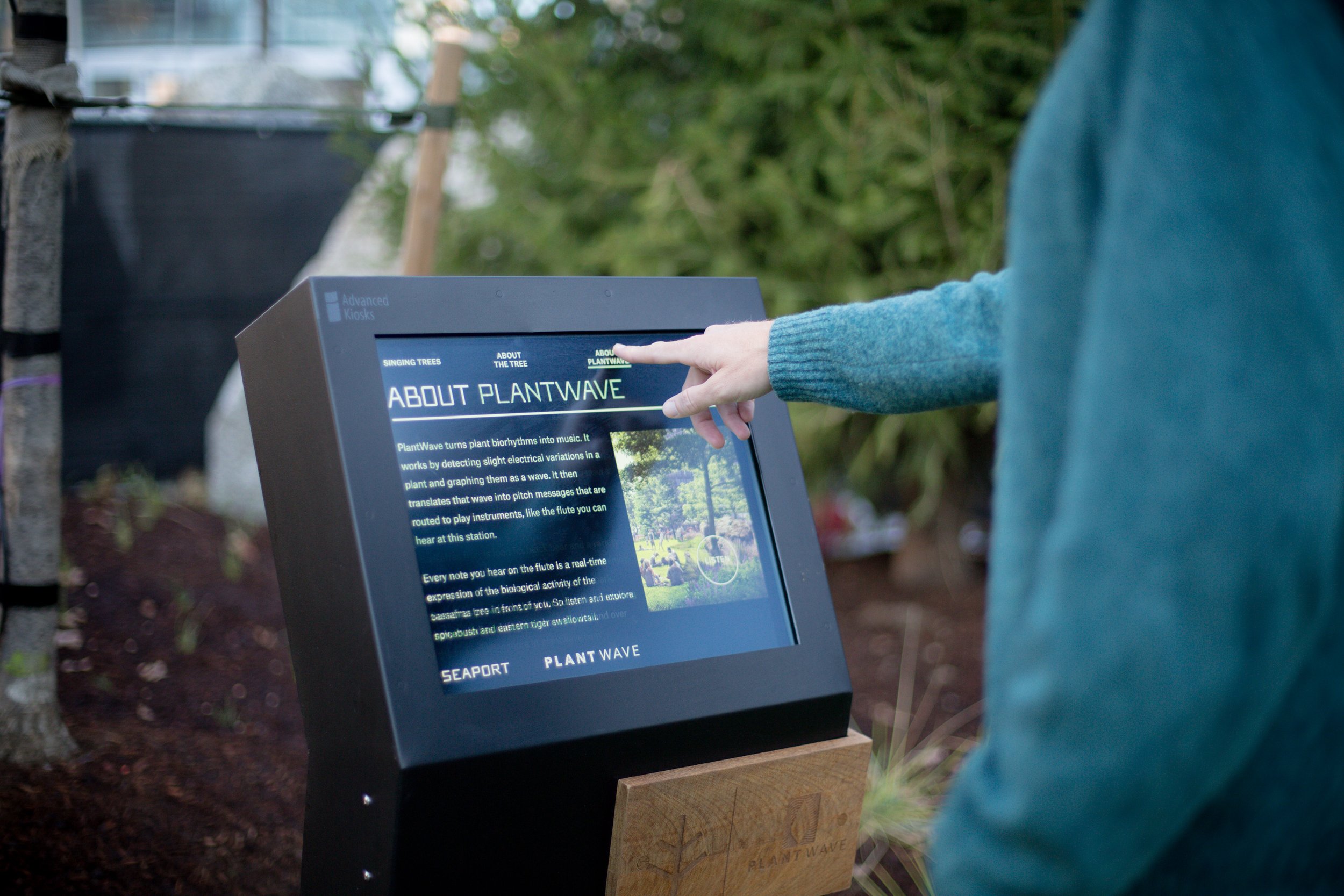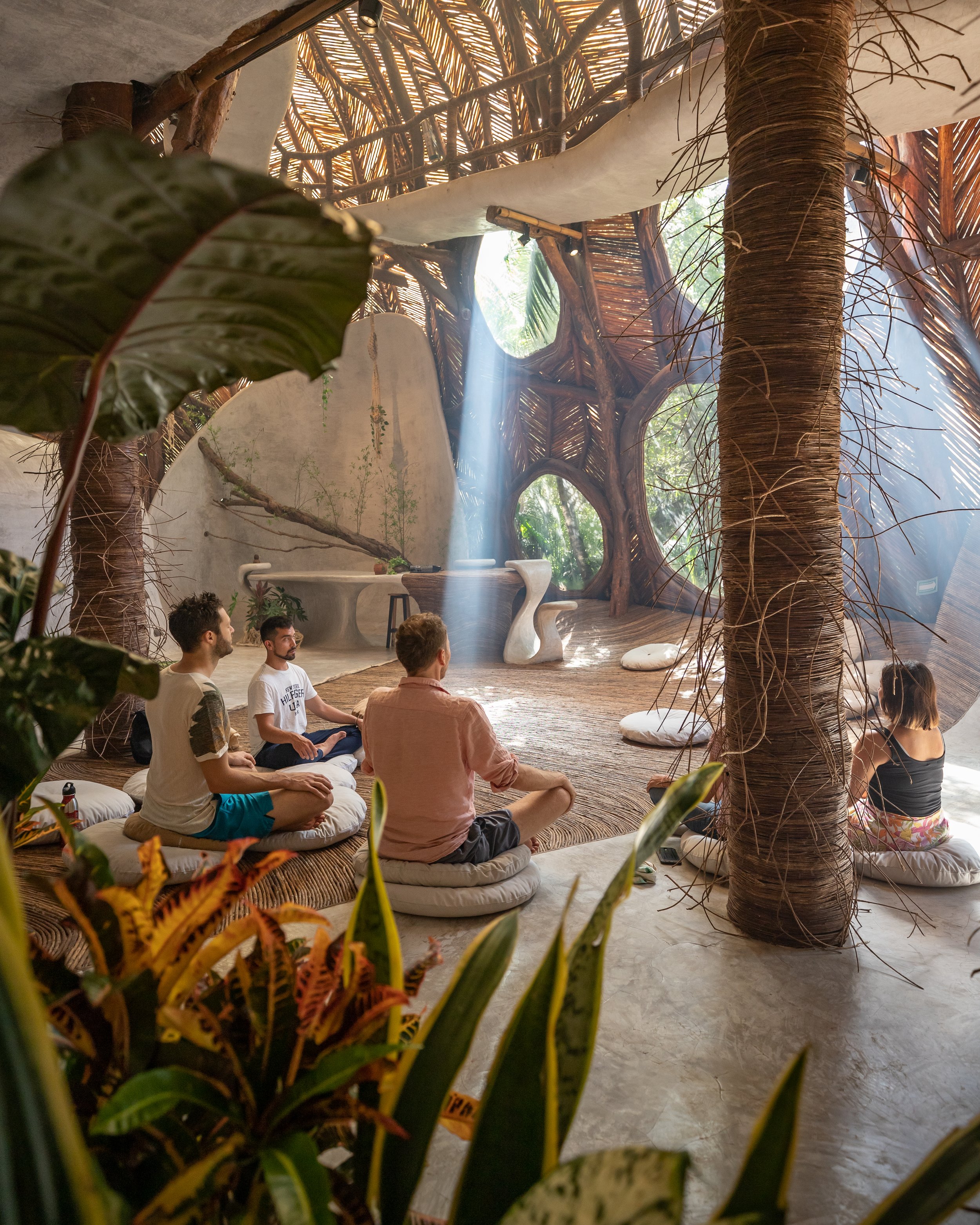
HISTORY
Started as a passion project, Data Garden has evolved into a leader in data sonification and generative design.
Data Garden was founded by Joe Patitucci and Alex Tyson as a zero waste record label in 2011. Instead of CDs, tapes or vinyl records, the label released digital albums via download codes on handmade printed artwork embedded with seeds that could be planted and grown into flowers.
During the early years, Data Garden produced outdoor arts festivals in natural settings to celebrate its record releases. The label produced The Switched-On Garden in 2011 and 2012 as an interactive exhibition exploring the connection between plants, music and technology. The festival featured live music and installations by artists spread over 56 acres of historic Bartram’s Garden in Philadelphia, attracting thousands of visitors.
In 2012, Data Garden was invited to produce a piece at The Philadelphia Museum of Art. Patitucci’s interest in holographic theory, generative music, algorithmic and ambient music composition along with Alex Tyson’s interest in early studies in plant consciousness led the group to create its first plant music installation.
Data Garden worked with engineer and developer, Sam Cusumano, who created a system that translated micro fluctuations in conductivity on the surface of a leaf into MIDI that could control hardware and software synthesizers. This MIDI data was then translated into harmonious music through Joe Patitucci’s algorithmic composition and sound design. The result was Data Garden Quartet, a plant music performance with four tropical plants playing music in harmony.
“Digital technology has made life easier in many ways, however, as we’ve advanced technologically, we’ve welcomed increased stress and distraction into our lives.”
While plant music was originally an experiment in ways of co-creating with nature, incidents at its showing revealed a deeper thread. Watching participants interact with the installation, Patitucci noticed a few instances over three days where the melodic patterns coming from a plant would change drastically when certain people walked into the room and stood within a few feet of a plant. These melodic changes would then move from plant to plant. Interested in understanding what was going on, Patitucci approached these people, told them what he had experienced and asked them about themselves. Upon hearing this, each of the individuals expressed no surprise, all saying something along the lines of, “Oh, that makes sense.” and then proceeding to talk about what they do, “I’m a Reiki master.” “I’m an energy healer.” “I’m a botanist.” “I’m a florist.” One little girl, named Melody, even waved her hands at a plant, turned to her mother, and said, “Look mom, all you need to do is think ‘light coming through your hands’ and the plants will sing for you.”
The fact that there seemed to be a connection between people who work closely with plants and subtle forms of energy greatly interested Joe. From that point on, he needed to learn how to connect to these energies without technology and continue to make this experience available to more people so that they could experience this connection.
Success of Data Garden Quartet led the group to show its work at festivals and museums around North America. As demand for this work increased, other sound artists became interested in making their own plant music compositions. To meet this desire, Data Garden launched a Kickstarter in 2014 for MIDI Sprout, a MIDI instrument that translates plant biorhythms into MIDI to control audio and video synthesizers in real time
Around this same time, Jon Shapiro joined Data Garden, exploring ways of presenting plant music in new spaces and formats. Living in Patitucci’s house at the time, Jon explored the relationship between fluctuations in plant music with feelings in his body while practicing yoga. He began bringing musical plants to yoga classes and holistic healing spaces to explore how the relationship between plant music and energetic shifts in traditional healing.
The same year, Joe began exploring the relationship between plant music and meditation - presenting a guided meditation, Exploring Patterns in Nature, at the Deep Listening Conference with Pauline Oliveros.
Shapiro eventually moved to New York where he continued his exploration of generating music from the interaction between sonified plants and humans by incorporating plants into live performances. This ranged from art galleries, music venues, dance clubs, and Judson Memorial Church. In each scenario the plants assumed different musical persona and stimulated the imagination of each audience in different ways. These experiences led him to cultivate new performance and presentation practices to facilitate people’s awareness of plant sonification. His goal was to increase audience's enjoyment of plant music, and increase their awareness of how their presence affected the plant’s music based on an energetic exchange.
In 2016, Data Garden fulfilled its MIDI Sprout Kickstarter, releasing the first 300 units. The company since made about 1200 more available, which quickly sold out.
Around the same time, Data Garden launched Plants FM, an online streaming service delivering live music generated by plants. The site generated interest among a new audience of plant music enthusiasts with a desire to listen to their own plants.
In 2017 Data Garden released the MIDI Sprout app for iOS, a sound engine allowing people with MIDI Sprout hardware to listen to plants play harmonious sounds designed by Data Garden’s team of artists.
In 2019, the company began the development of PlantWave, a new device that would replace MIDI Sprout and expand on it with wireless connection and instruments that could be selected by the user through PlantWave iOS and Android apps. PlantWave retained all of the pro features of MIDI Sprout (including the ability to connect to synthesizers and digital audio workstations) while opening up plant music to a whole new audience via a simple and intuitive consumer product.
Data Garden has produced and sold thousands of PlantWaves. The company continues to expand on the PlantWave platform with new instruments, soundsets and ways to share plant music delivered through the app.
The company also produces bespoke creative services including plant music, pop-ups and permanent installations in the wellness and hospitality industries. Past clients include TED, Goop, WS Development, Ace Hotel Palm Springs, Azulik Tulum, Unilever
Data Garden CEO, Joe Patitucci, demonstrates benefits of biodata sonification in increasing heart rate variability.
In parallel to Data Garden’s work making plant music, the company deploys its patented generative music algorithms for data sonification projects across industries. The company is engaged in research projects related to creating a realtime soundtrack to life using data from wearables, sensors and IoT devices.
“Data Garden is building a bridge from a world of digital distractions to a life of physical presence.”
what we create
how we use it
blog










